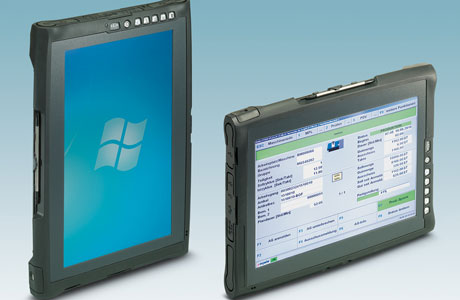Which Computer Is Designed For Industrial Use?
Key Takeaway
An industrial PC is designed for industrial use. Unlike a standard PC, an industrial PC can withstand harsh environments. It is resistant to dust, vibrations, and extreme temperatures. These PCs are built to be durable and reliable, making them ideal for use in factories, warehouses, and other industrial settings. They ensure smooth and continuous operation even in tough conditions. Industrial PCs are essential for managing and controlling industrial processes efficiently.
Characteristics of Industrial Computers
Industrial computers are built to operate in harsh environments and handle demanding tasks that standard PCs cannot. They have rugged construction, designed to withstand extreme temperatures, vibrations, dust, and moisture. This durability ensures continuous operation in tough conditions, essential for industries like manufacturing, energy, and transportation.
One key characteristic is their reliability. Industrial computers use high-quality components that offer long-term stability and performance. They often include features like solid-state drives (SSDs), industrial-grade power supplies, and robust cooling systems to maintain functionality under stress. Additionally, they support various industrial protocols and interfaces, allowing seamless integration with other machinery and systems.

Types of Computers Designed for Industry
Different types of industrial computers are designed to meet specific needs. Panel PCs are one type, integrating a touchscreen and computer into a single unit. These are commonly used in factory automation and control systems for easy monitoring and operation.
Embedded PCs are another type, compact and often fanless, used for specific control tasks where space is limited. They are ideal for applications in transportation systems, medical devices, and automated kiosks. Rackmount PCs are designed to fit into standard server racks and are used in data centers and network control rooms for high-performance computing tasks.
Each type serves distinct purposes, providing flexibility and customization to meet the varied demands of industrial applications. Understanding the specific requirements of your industry will help in choosing the right type of industrial computer.
You May Like to Read
Selecting the Right Industrial Computer
Selecting the right industrial computer involves considering several factors. First, assess the environmental conditions it will operate in. If the computer will be exposed to dust, moisture, or extreme temperatures, ensure it has the appropriate protection ratings and rugged design.
Next, consider the processing power and memory needed for your applications. High-performance tasks like real-time data processing or complex automation require powerful CPUs and ample RAM. Additionally, evaluate the connectivity options. Industrial computers should have multiple ports and support for various protocols to interface with existing equipment and networks.
Finally, think about future scalability. Choose a computer that allows for easy upgrades and expansions to accommodate growing needs. This forward-thinking approach will save costs and time in the long run, ensuring the computer remains relevant and efficient as your operations evolve.
Innovations in Industrial Computer Design
Innovations in industrial computer design continue to push the boundaries of what these machines can achieve. One significant advancement is the development of fanless designs using advanced cooling technology. This reduces maintenance needs and improves reliability in dusty or dirty environments. Enhanced materials and coatings now provide better protection against corrosion and physical damage, extending the lifespan of these computers.
The integration of Artificial Intelligence (AI) and Machine Learning (ML) is becoming more common in industrial computers. These technologies enable predictive maintenance, process optimization, and improved decision-making, enhancing overall operational efficiency.
Edge computing is another key innovation. By processing data closer to its source, edge computing reduces latency and increases efficiency, making real-time data processing and analysis more effective. This capability is particularly important for applications requiring immediate feedback and control, such as in smart manufacturing and automation.
These innovations not only enhance the performance of industrial computers but also open up new possibilities for automation and smart manufacturing. They drive forward the capabilities and applications of industrial computers, making them more versatile and powerful tools in various industrial settings. For new engineers, understanding these advancements is crucial for leveraging the full potential of modern industrial computing technology.
Case Examples of Industrial Computers
Several industrial computer models exemplify the best in design and functionality. The Siemens SIMATIC IPC series, for instance, offers robust and high-performance PCs tailored for industrial automation. These computers feature advanced processors, extensive connectivity options, and rugged construction suitable for harsh environments. They are designed to handle demanding tasks, ensuring reliable operation in critical industrial applications.
Another notable example is the Advantech UNO series, known for its compact, fanless design and versatility. These PCs are widely used in machine automation and factory management, providing reliable performance even in challenging conditions. The fanless design reduces maintenance needs and enhances durability, making them ideal for environments with dust and debris.
The Beckhoff C6015 is a compact yet powerful industrial PC, perfect for applications requiring high processing power in limited space. Its small form factor does not compromise on performance, making it suitable for a wide range of industrial applications, from automation control to data processing.
These models demonstrate the diverse applications and robust design features that make industrial computers indispensable in modern industry. Their success in real-world scenarios highlights the importance of choosing the right equipment for specific industrial needs. For new engineers, understanding these case examples is crucial for appreciating the capabilities and selecting the appropriate industrial PC for various applications.
Conclusion
Identifying the best computers for industry involves understanding the unique requirements of industrial environments and selecting machines that offer durability, reliability, and performance. Industrial computers are essential for automating processes, controlling machinery, and ensuring seamless operations in harsh conditions.
By considering the characteristics, types, selection criteria, and latest innovations, businesses can make informed decisions and choose the right industrial computers to enhance their operations. With the right equipment, industries can achieve greater efficiency, safety, and productivity, leveraging the full potential of advanced computing technology.
